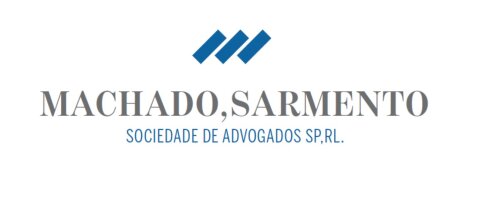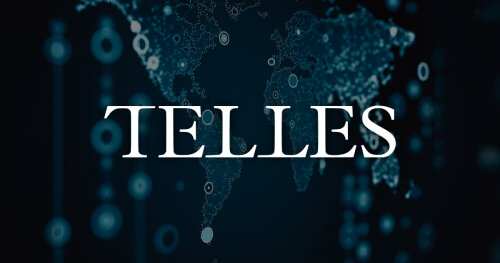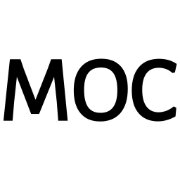Best International Trade Law Lawyers in Porto
Share your needs with us, get contacted by law firms.
Free. Takes 2 min.
List of the best lawyers in Porto, Portugal
About International Trade Law in Porto, Portugal
International Trade Law in Porto, Portugal is a dynamic field that governs the import and export of goods and services across the country's borders. Porto, being one of Portugal's major commercial and industrial hubs with a thriving port, is at the center of many trade activities. International Trade Law here is shaped by local, national, and European Union regulations, and it ensures that businesses comply with tariffs, customs procedures, licensing, trade agreements, and dispute resolution mechanisms. Whether you are an individual entrepreneur or a multinational organization operating in Porto, understanding these laws is essential to smooth business operations and avoiding costly legal disputes.
Why You May Need a Lawyer
You may require a lawyer specializing in International Trade Law in Porto for various reasons. Trade regulations are complex and continually evolving, especially due to Portugal's membership in the European Union. A legal expert can help you navigate customs requirements, resolve disputes with foreign partners, draft trade contracts, comply with export and import regulations, and address issues arising from sanctions and embargoes. Common situations include starting a new import-export business, encountering customs delays or penalties, facing allegations of regulatory non-compliance, or needing guidance on international contracts and logistics. Legal advice can help you avoid severe fines, business disruptions, and reputational damage.
Local Laws Overview
Several layers of regulation affect international trade in Porto. At the national level, Portuguese law covers customs procedures, licensing, logistics, and taxation. As an EU member, Portugal must also comply with European Union regulations regarding tariffs, quotas, safety standards, and trade remedies. The Customs Code of the European Union, anti-dumping measures, and free trade agreements significantly impact businesses in Porto. There are also rules against money laundering, export of sensitive goods, and trade in dual-use items. Porto's prominence as a logistical hub means local authorities, such as the Port Authority, play a role in enforcing these laws. Non-compliance can lead to penalties, confiscation of goods, or criminal liability.
Frequently Asked Questions
What is International Trade Law and how does it apply in Porto?
International Trade Law regulates cross-border trade and ensures that imports and exports comply with both local and international regulations. In Porto, this includes Portuguese laws and European Union rules.
Do I need a license to import goods into Porto?
Many goods require specific licenses or permits, especially those categorized as controlled or sensitive items. Check with local customs authorities for your product category.
What taxes and duties apply to imported goods in Porto?
Products imported to Porto from outside the European Union are subject to customs duties, VAT, and sometimes excise duties. EU-origin goods generally move freely without customs duties.
How do I resolve a dispute with an overseas supplier?
Most trade disputes can be resolved through negotiation or mediation. If not, litigation or arbitration may be necessary, often depending on the contract terms and applicable law.
Are there any banned or restricted items in international trade through Porto?
Yes, certain items such as hazardous chemicals, weapons, and protected cultural goods are subject to strict controls, bans, or require special permits.
How do EU trade agreements affect my business in Porto?
EU trade agreements can lower tariffs, remove quotas, and simplify procedures with many partner countries, benefiting businesses operating out of Porto.
What is the process for clearing goods through customs in Porto?
You must submit a customs declaration, provide accurate invoices and documents, pay necessary duties and taxes, and comply with inspections if required.
How can I protect my business from legal risks in international trade?
Work with legal counsel to draft clear contracts, ensure regulatory compliance, maintain up-to-date knowledge of relevant laws, and seek advice on risk mitigation.
Can I export goods freely from Porto to non-EU countries?
Exports are often subject to permit requirements depending on the goods and the destination. Non-EU countries may have their own import rules and tariffs.
What happens if I violate international trade laws in Porto?
Violating trade laws can result in fines, seizure of goods, business disruption, and even criminal prosecution for severe breaches.
Additional Resources
If you need more information or support, you may consult the following resources:
- Portuguese Customs Authority (Autoridade Tributária e Aduaneira): Responsible for customs rules and procedures. - European Commission Directorate-General for Trade: Offers guidelines on EU trade policy. - Porto Chamber of Commerce and Industry: Assists businesses with trade-related inquiries and documentation. - Portuguese Trade and Investment Agency (AICEP): Supports international business, trade missions, and market intelligence. - Local law firms with expertise in International Trade Law in Porto: Provide individualized legal advice and representation.
Next Steps
If you need legal assistance with International Trade Law in Porto, consider these steps:
- Identify your specific legal issue and gather all relevant documents. - Seek initial information from reliable public resources and trade bodies. - Contact a lawyer or law firm in Porto with proven experience in international trade matters. - Arrange a consultation to discuss your case, potential strategies, and expected costs. - Work with your legal adviser to develop a compliance plan, resolve disputes, or handle any regulatory challenges you face. Taking prompt and informed action can safeguard your business interests and help you navigate the complexities of international trade with confidence.
Lawzana helps you find the best lawyers and law firms in Porto through a curated and pre-screened list of qualified legal professionals. Our platform offers rankings and detailed profiles of attorneys and law firms, allowing you to compare based on practice areas, including International Trade Law, experience, and client feedback.
Each profile includes a description of the firm's areas of practice, client reviews, team members and partners, year of establishment, spoken languages, office locations, contact information, social media presence, and any published articles or resources. Most firms on our platform speak English and are experienced in both local and international legal matters.
Get a quote from top-rated law firms in Porto, Portugal — quickly, securely, and without unnecessary hassle.
Disclaimer:
The information provided on this page is for general informational purposes only and does not constitute legal advice. While we strive to ensure the accuracy and relevance of the content, legal information may change over time, and interpretations of the law can vary. You should always consult with a qualified legal professional for advice specific to your situation.
We disclaim all liability for actions taken or not taken based on the content of this page. If you believe any information is incorrect or outdated, please contact us, and we will review and update it where appropriate.













